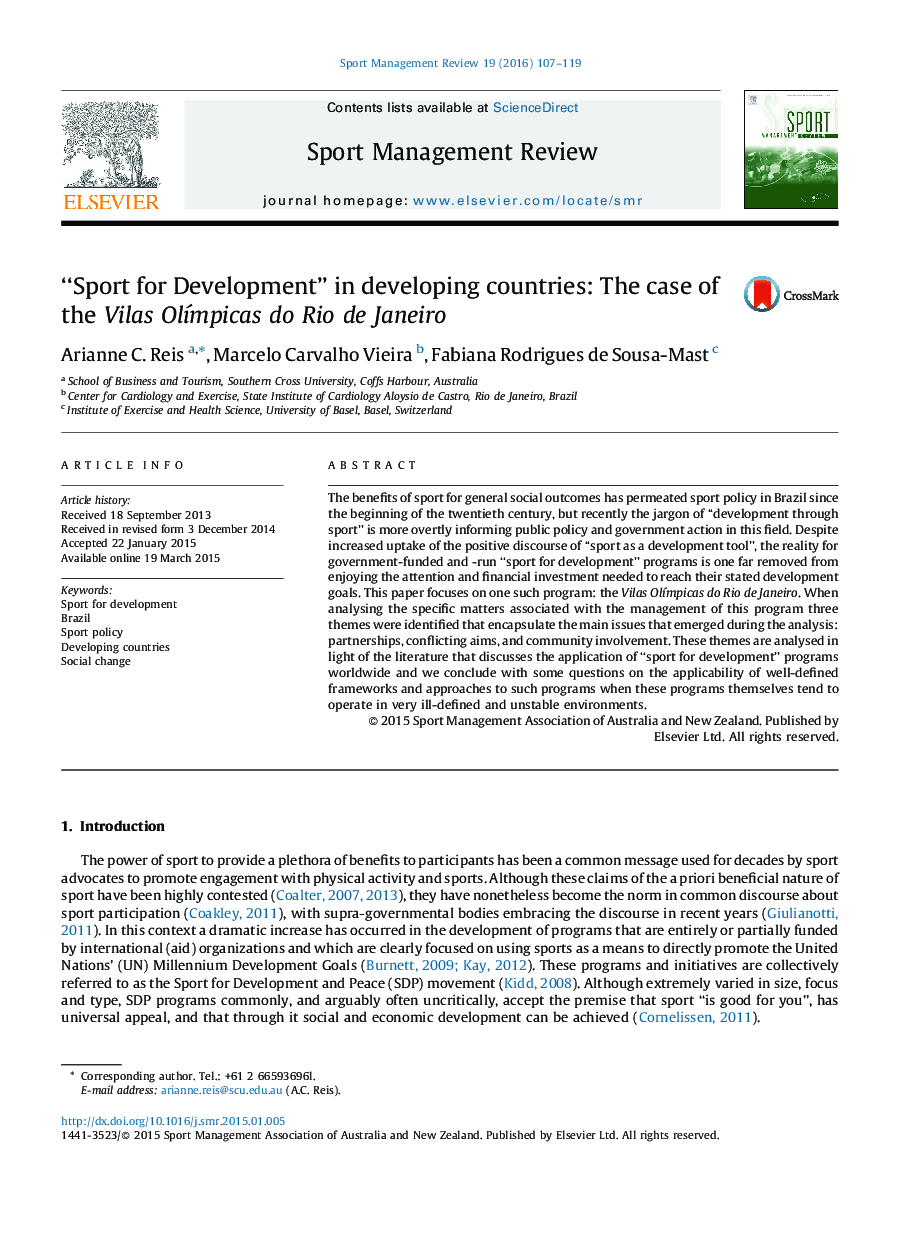| Article ID | Journal | Published Year | Pages | File Type |
|---|---|---|---|---|
| 140786 | Sport Management Review | 2016 | 13 Pages |
•Sport-for-development approaches are contrasted to a SDP program in Brazil.•Current models do not address complexities of government-led SDP projects.•Role of community support/involvement was still highlighted as crucial for success.
The benefits of sport for general social outcomes has permeated sport policy in Brazil since the beginning of the twentieth century, but recently the jargon of “development through sport” is more overtly informing public policy and government action in this field. Despite increased uptake of the positive discourse of “sport as a development tool”, the reality for government-funded and -run “sport for development” programs is one far removed from enjoying the attention and financial investment needed to reach their stated development goals. This paper focuses on one such program: the Vilas Olímpicas do Rio de Janeiro. When analysing the specific matters associated with the management of this program three themes were identified that encapsulate the main issues that emerged during the analysis: partnerships, conflicting aims, and community involvement. These themes are analysed in light of the literature that discusses the application of “sport for development” programs worldwide and we conclude with some questions on the applicability of well-defined frameworks and approaches to such programs when these programs themselves tend to operate in very ill-defined and unstable environments.
